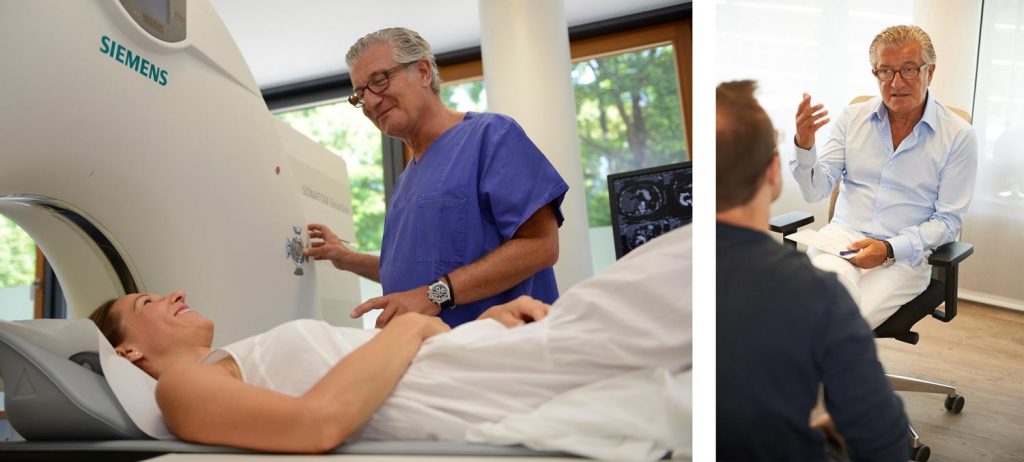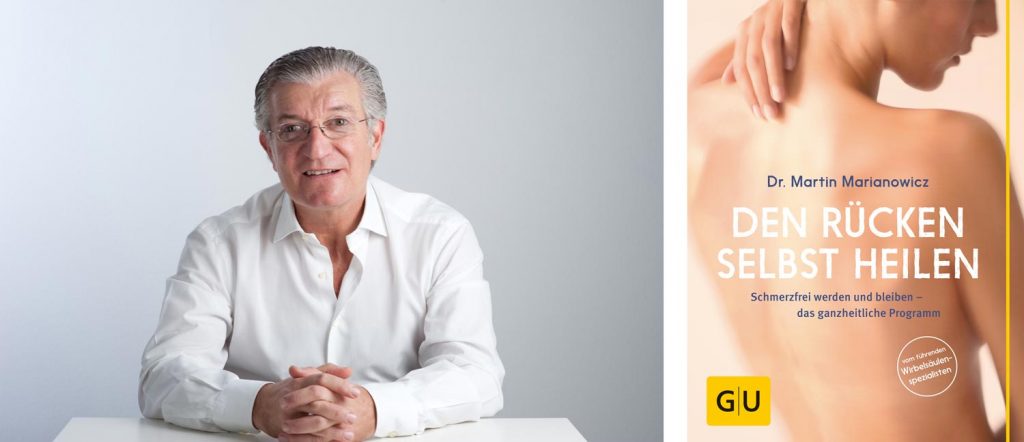Why is the psyche so important in treating back pain?
Chronic back pain is not always or not only related to an organic disease. They are also subject to psychosocial influencing factors such as stress, emotional distress, grief, grief or depression. The emotional aspect of back pain should not be underestimated, because our attitudes, emotions and expectations influence how we perceive pain. The brain with its pain centers and with its emotional centers is an equally serious participant in pain perception and processing. To make matters worse, long-lasting pain can literally burn itself into the brain. Then the pain threshold in the brain decreases and there is, so to speak, a perceived permanent pain. Medicine knows the expression for this: pain memory. Anyone who suffers from constant or recurring back pain over a long period of time should therefore also ask themselves: In which situations does the pain arise or get worse? Is everything alright in my life? What mental stress are on my shoulders? Has the pain lodged in my brain? What changes would be good for my back?

„I GUIDE MY READERS TO QUESTION THEIR PAIN“
What are the first steps towards recovery?
In the private clinic in Jägerwinkel am Tegernsee as well as in the Marianowicz Medical Center in Munich, we work in multimodal pain therapy with different individually coordinated treatment approaches from different specialist areas. A team of experts examines in a variety of ways which stresses are responsible for the pain, puts together an individual treatment concept and discusses the individual measures and progress in pain conferences. On the one hand, the organic structures are treated with the most modern medical methods. The spectrum ranges from drug therapy and physiotherapy to minimally invasive techniques. On the other hand, we take care of the pain caused by mental suffering and impart knowledge to the patient about the effective ways the mind can influence pain management. In addition to relaxation procedures, the basis of the therapeutic work is individual therapy. In a conversation, the pain-inducing situations and thought and action patterns are analyzed and new behaviors are developed. Just as strength training relieves muscular tension, “pain training for the brain” relieves the emotional burden that presses on the back. We have had very good experiences with the multimodal treatment approach, because our patients can significantly improve their quality of life, which is restricted by the pain.

The 3-step program by Dr. Marianowicz is based on the latest scientific findings from neurology, psychology, physiotherapy and pain research and takes into account the physical, psychological and social factors influencing back pain. The book on the role of pain memory in the perception of complaints. Numerous questionnaires, tests, checklists and exercises help to track down the individual causes of pain, to alleviate the symptoms and to make the back flexible in the long term. A two-phase training program first makes the back mobile and then strong again. Easily implementable tips for a healthy back lifestyle, from eating to sitting, serve as helpful accompanying measures to support the back in its healing work and to permanently relieve the symptoms.






